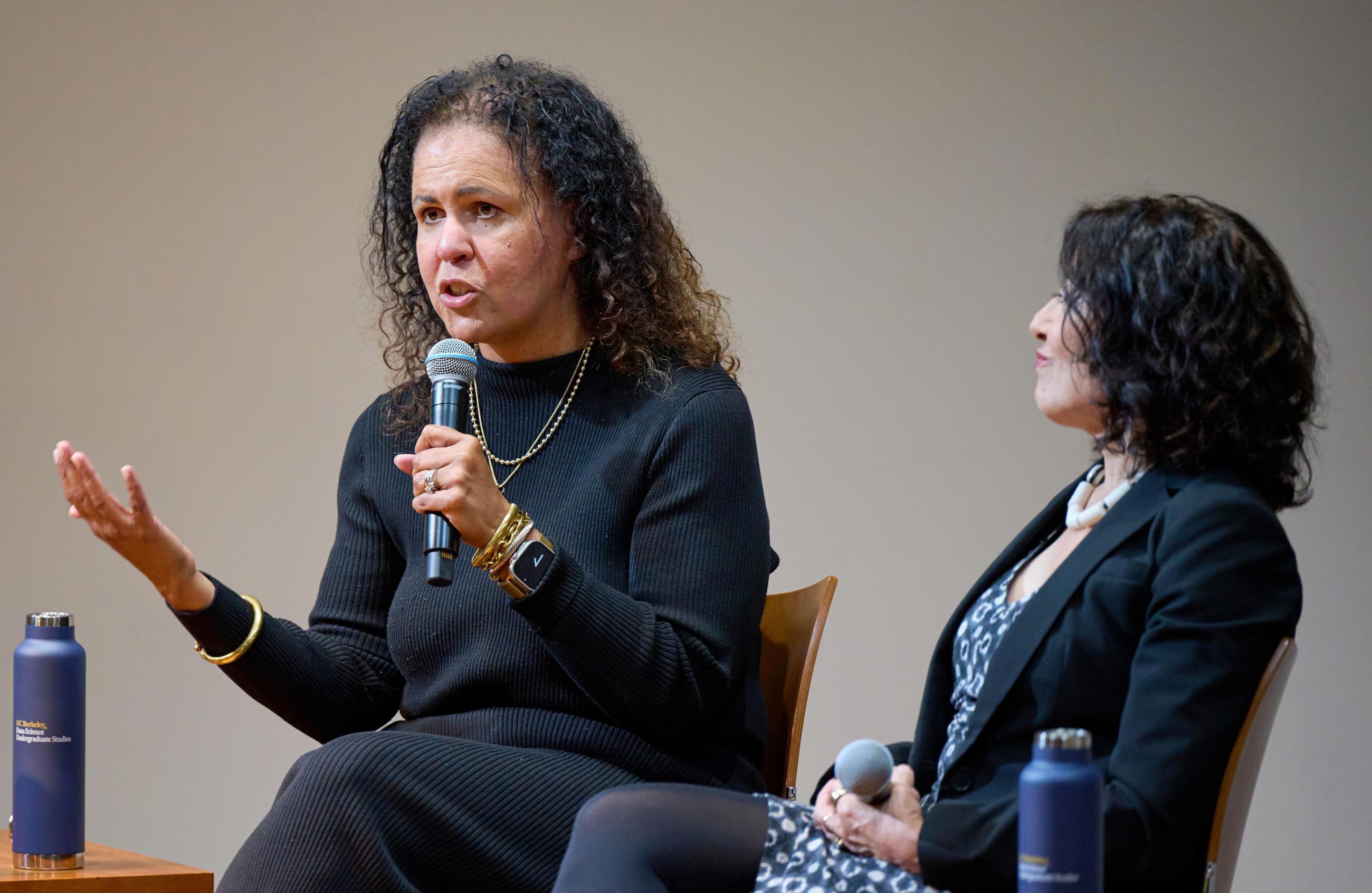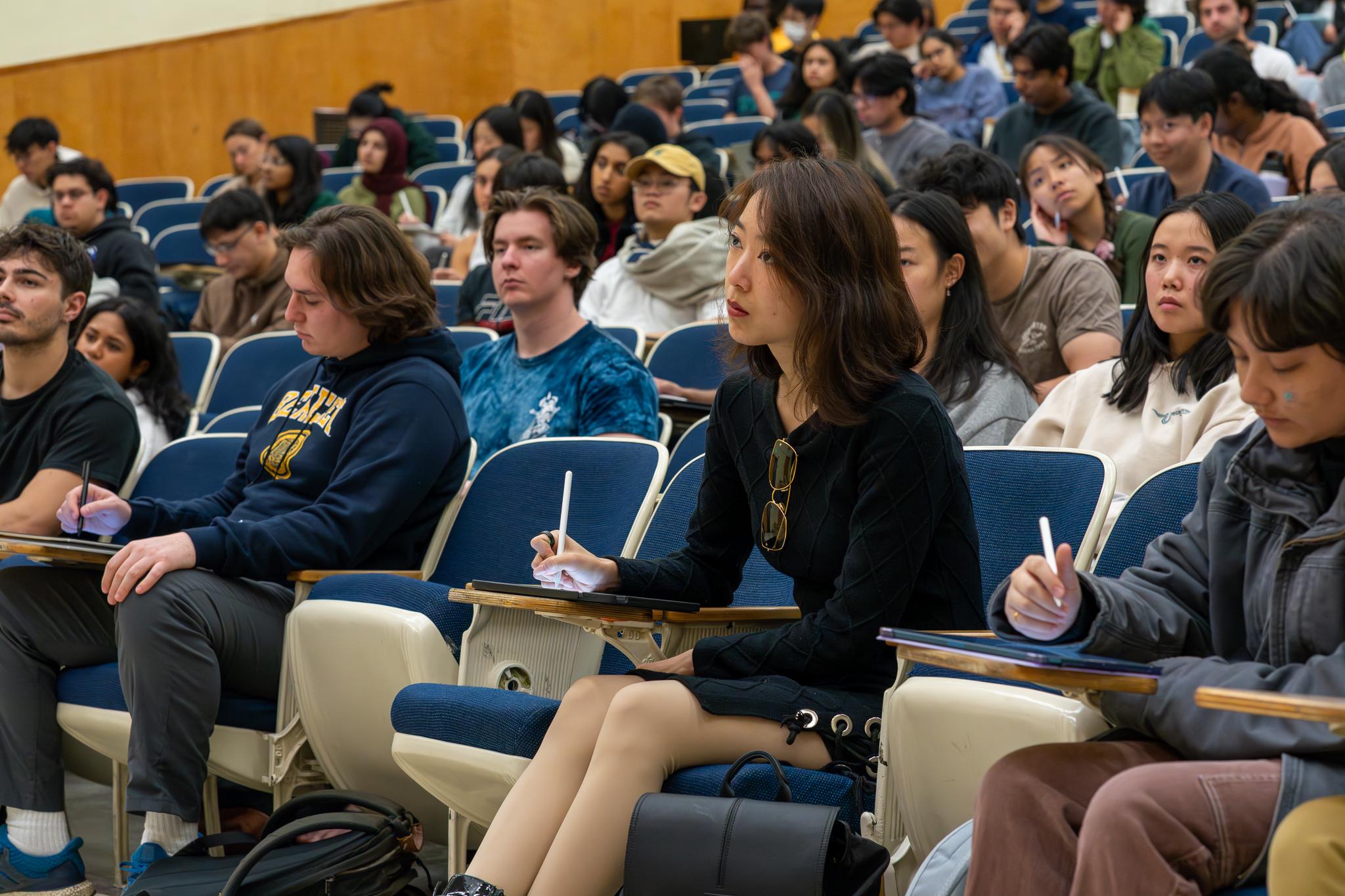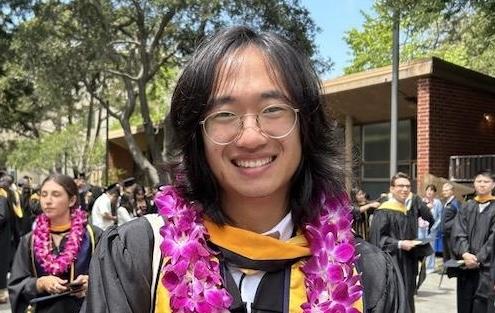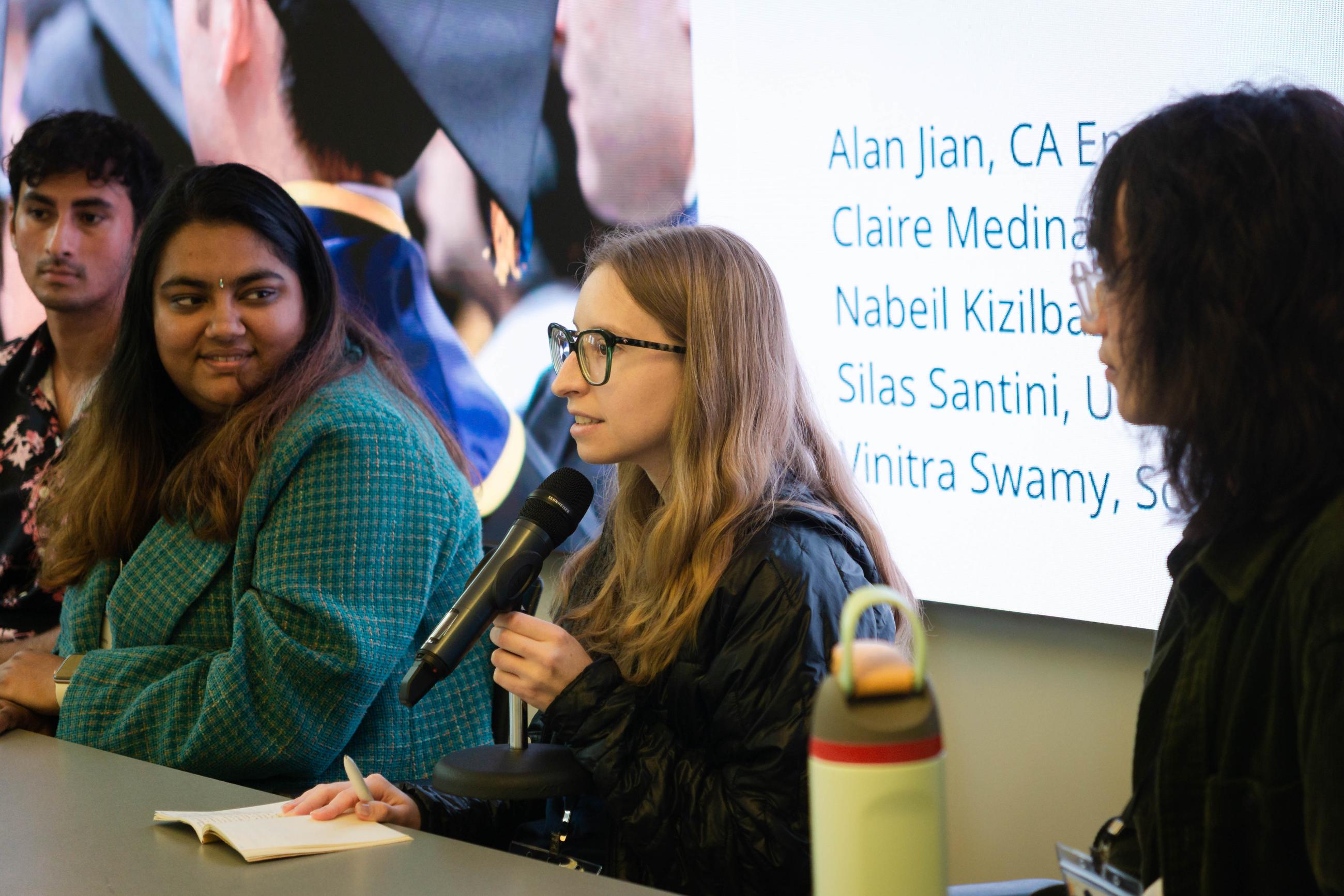
In a week filled with panels on pedagogy, curriculum design and emerging technologies in the classroom, the 2025 National Workshop on Data Science Education paused to ask a critical question: What comes next for the students we teach?
A panel of UC Berkeley alumni offered their perspectives, reflecting on how their undergraduate experience shaped their careers, what they wish they'd known earlier and how educators can better prepare students for a changing workforce.
Though the panelists came from diverse sectors — tech giants, government agencies, startups and academia — their stories served as living case studies of how a data science education can open up a variety of doors and why an interdisciplinary approach is key to success.
The skills that matter
While the panelists touched on technical tools and skills that are critical in their jobs — SQL, Pandas, data cleaning and debugging — one theme became clear: technical expertise isn’t enough.
The importance of independent learning and problem-solving was highlighted by multiple alumni. Many operate as the only data scientist (or one of very few) in their organizations, so may not have peers or mentors to go to for advice on technical problems. Even when those resources are available, there are advantages to self-learning.
“If you want to get promoted at Google or Facebook, you have to demonstrate that you can work at the capacity of the level above you,” said Nabeil Kizilbash (B.A. ‘22), a data scientist at Google. “You’ll need to review internal documents, even try to find answers online, to demonstrate you can handle whatever’s being thrown at you.”
The panelists were quick to point out that developing expertise independently does not mean they work without input from others.
Silas Santini (B.A. ‘22, M.S. ‘24), a course software and infrastructure engineer at Berkeley, emphasized the value of offering a unique point of view on a diverse team. “In the Data Science for Social Good program, I was on a team with a psychologist, a political scientist and a statistician,” Santini said. “By putting all these people together, we came up with different, more complete solutions than what any one of us would have reached on our own.”
Staying competitive in a changing job market
In a field evolving as rapidly as data science, especially with the emergence of AI, the panel emphasized leaning on the interdisciplinary nature of their degree.
“Become a specialist,” said Vinitra Swamy (B.A. ‘17, M.S. ‘18) CEO and co-founder of a personalized learning company at the intersection of AI and education, Scholé AI. “If you get really good at one niche — the intersection of data science and education or clean energy or health — you’ll always be the most qualified candidate for a particular role.”
Swamy also noted the importance of finding the excitement in a fast-moving field. “Being the person who’s embracing new technology makes you stand out.”
Panelists also urged students to develop the ability to communicate their work. Claire Dominique Medina (B.A. ‘21) credited this skill for her current role as a data scientist for iHeartMedia.
“There is only one data scientist role on my team, so it was essential for the hiring committee to find someone who could translate the technical work to non-technical supervisors,” said Medina.
Those communication skills often expand to being able to contextualize data science within a larger framework.
“Oftentimes, a data science project is actually used as argumentation or evidence — where funding should go or to promote a proposal for specific regulation,” said Alan Jian (B.A. ‘22, M.S. ‘23), an energy analyst at the California Energy Commission. “You have to be able to connect the dots beyond the data.”
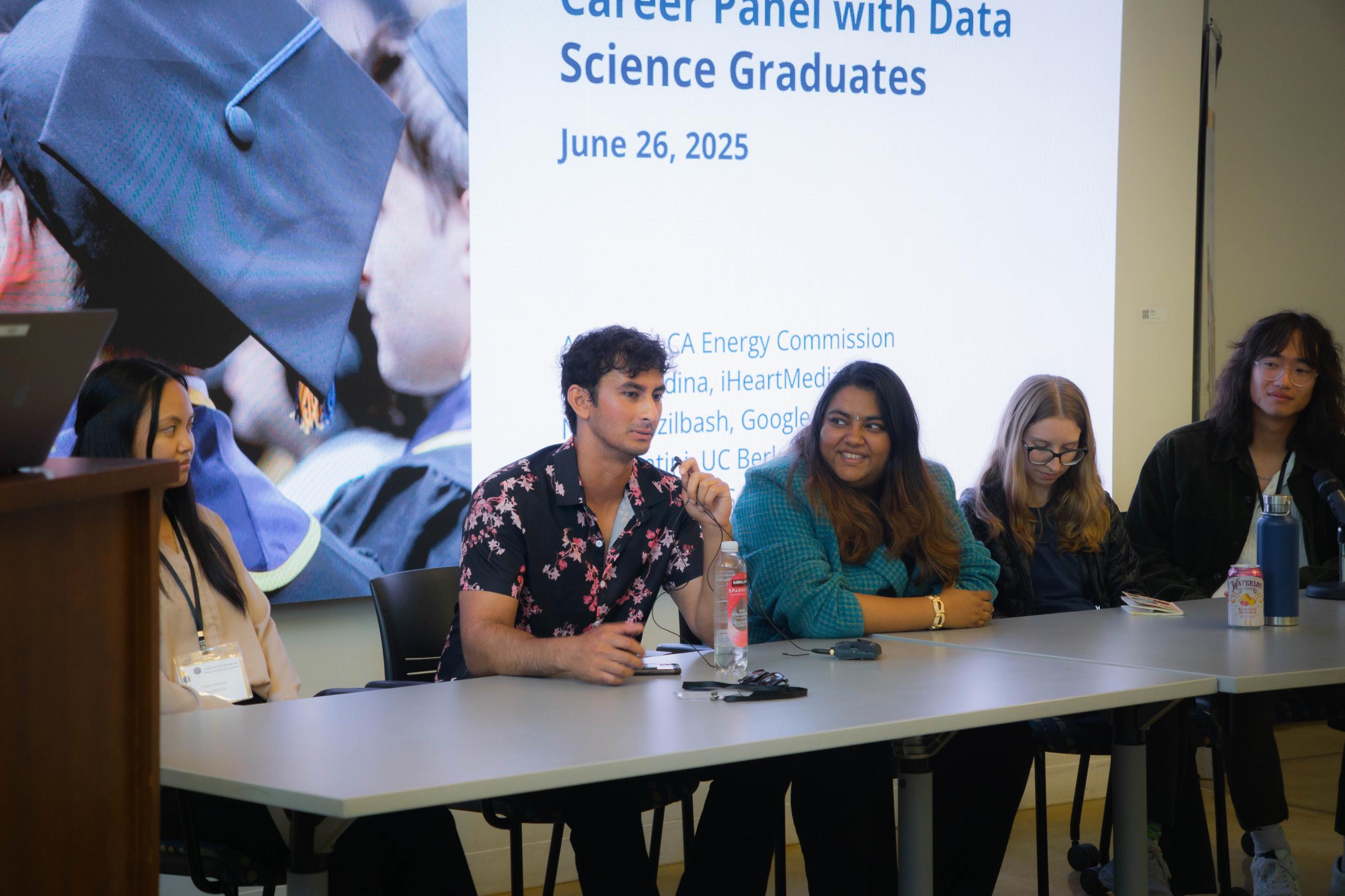
Getting a foot in the door
While both the audience and panel acknowledged the challenges presented to early career professionals, the panel suggested one major hurdle can be fear.
“A lot of students, myself included, are so afraid of getting rejected by companies,” said Kizilbash. “These companies are getting thousands of applications–you can’t take it personally. Apply to as many as possible.”
Jian agreed. “A lot of job seekers chase the flashy careers–the big paychecks or the top-tier positions. But if they look just a little further outside of Silicon Valley, there’s a lot of demand for data science and software expertise.”
The panelists point out that many small businesses, fledging start-ups, and non-profit organizations are hungry for technical support. These opportunities provide stepping stones and incubators to grow one’s skills.
Advice for educators: what students really need
In terms of preparing students for career, one answer echoed loudly: hands-on projects, particularly ones with real-world connections.
“When you’re working with your peers to solve a technical problem together, each proposing different approaches and debating what will work, that’s incredibly important,” said Swamy, who is currently building her own company’s team.
Santini and Jian drew upon their experience teaching undergraduates as student instructors, agreeing on the value of allowing students to take ownership of a project.
Santini also identified a critical need for early technical exposure. “People that come into college with experience in data science, statistics, or computing have more confidence. It’s important that we have open science curriculums, that we have classes on these subjects in middle and high schools, not just in areas that bring in high property taxes.”
A final resource to consider: alumni. Brandilyn Buckley, panel moderator and communications director for Data Science Undergraduate Studies, suggested that connecting students with alumni already in career positions can "make the pathway a little easier for the next person."

